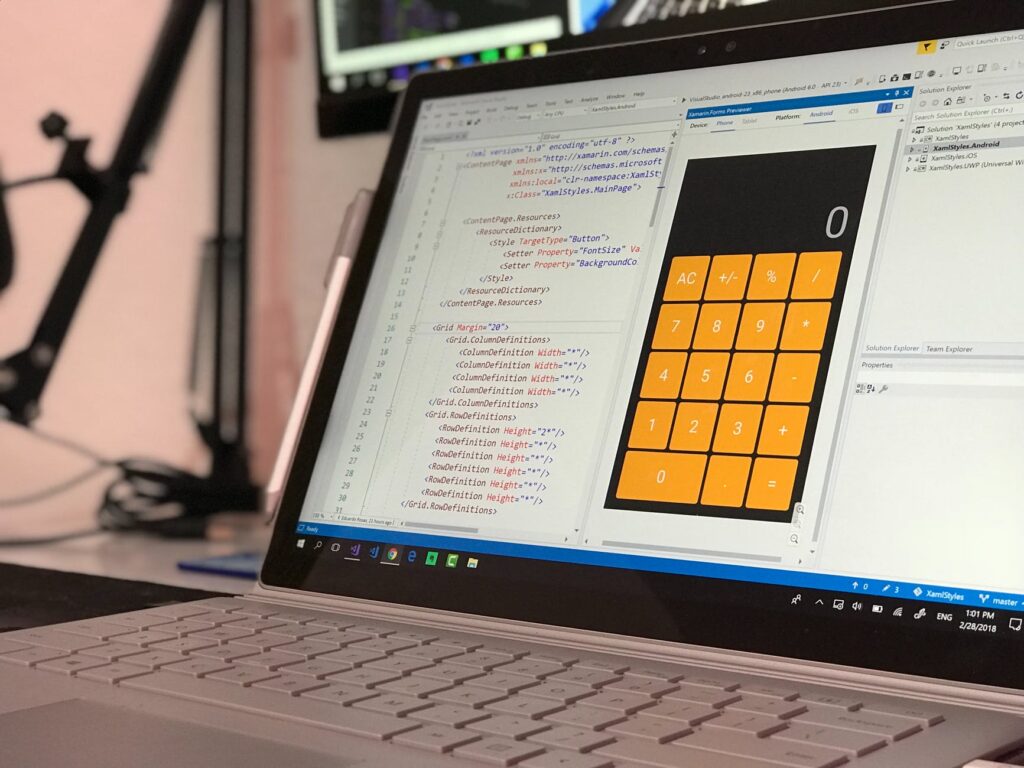In today’s modern world, everything is revolutionized from traditional methods and concepts to digital tools.
Similarly, the way of perceiving knowledge and delivering knowledge has also changed in many ways.
Although the basic methods are still existing like one teacher is teaching the entire class but it’s the medium that has been changed.
In the past the learning and teaching were only accessible within the small boundaries of classrooms but now things have changed.
Thanks to the innovative technologies that have to broaden the scope of teaching and learning beyond the limits of classrooms.

Img source: pexels.com
Technologies like:
- Mobile
- Tablets
- Laptops
- E-books
- Online applications
- Collaborative network applications
These tools and applications have aided in taking education to an advanced level.
Besides the usage of these helpful technologies has increasingly become a necessity for students.
These tools and applications are key enhancers in increasing a student’s academic productivity.
Among these modern applications is Online calculators.
Although there are different types of online calculators from health to finance, from love to sig fig calculations they all have one basic purpose and that is doing the basic calculations.
It’s quite common that students nowadays don’t carry traditional calculators, instead, they rely on their pocket-size smartphones where they can easily access online calculators.
This helps them save space, be a creative learner and collaborate on live time with multiple students.
Evolution of Calculators

Img source: pexels.com
Since the beginning of civilization, humans used to count on fingers, toes, marbles, pebbles sticks, etc.
By that time no numbers were existing and neither any specific standards.
Overtime as humans traveled from one place to another around the world, meanwhile, they learned new things, new cultures, and new methods of calculating.
As reported in history, initially it was the “Abacus” consisting of beads on sticks that were used for counting. Later on.
- In 1600 A.D – It was the “Napier’s Bones” Rods that made multiplication easier.
- In 1622 A.D – The slide rule came into play – it was a logarithmic rule invented for multiplication and division.
- In 1623 A.D – Calculating Clock was invented which is also known as the first mechanical calculator.
- In 1642 A.D – Pascaline was invented though it failed to generate sales.
- In 1673 A.D – The first functional calculator which could perform functions like multiplication, addition subtraction, and division, was known as Stepped Reckoner.
- In 1820 A.D- The first commercialized mechanical calculator came into existence, this was named as Arithmometer, and it was successful in doing all four basic operations this included Addition, subtraction, multiplication, and division.
- In 1822 A.D- It was Charles Babbage, who developed the original difference engine.
- In 1853 A.D- The first printing calculator was discovered which was called The Scheutz Difference Engine.
- In 1878 A.D – The first direct multiplication machine was invented by Ramon de Verea.
- In 1884 A.D- Comptometer came into existence, it was the first of its kind that successfully consisted of key-driven adding and calculating operations features.
- In 1948 A.D – The first small handheld calculator was invented and was known as “Curta”.
- In 1961 A.D – The world’s first-ever electronic desktop calculator was introduced with the name Anita MK VII
- In 1965 A.D – An advancement took place in handheld calculators known as Cal-tech.
- In 1969 A.D- The first handheld calculator was invented which was powered on batteries, it was called SHARP QT – 8d.
- In 1971 A.D- The first calculator came into existence that included a microprocessor, it was known as Busicom 141-PF.
- In 1974 A.D- A programmable handheld calculator was invented by Hewlett Packard known as HP-65.
- In 1978 A.D – An innovative calculator came into existence which was powered by solar power, this was known as Teal Photon.
- In 2003- The first-ever graphing calculator which also debuted stylus instead of using fingers, was known as SHARP EL-9650.
Thereafter, calculators came into different shapes and forms including online website calculators.
It just requires internet connectivity and by simply visiting the website a student can access the calculator.
Types of Online Calculators

Img source: pexels.com
As compared to the physical calculator’s online calculators offers the user a vast selection of numerical calculations.
Although they all were designed to do the core operations like multiplication, addition, subtraction, and division? With the growing demand, online calculators became more multifunctional.
Online calculators help people with numerous tasks, issues, and actions like calculating midpoint, antilog or to calculate centripetal force (check here). Therefore, some people also call it a multitasking apparatus.
They help in calculating numerous tasks related to popular fields and subjects like Health, trade, finance, love, etc.
Below Are the Popular Types of Online Calculators
- Body Mass Index (BMI)
- Currency Converter
- Mortgage
- Loan
- Area
- Weather
- Unit converter
- Density
- Velocity
- Kinetic Force
- Battery charge time
- GCF
- LCM
- Age
- Significant figures
- Partition
- Perpendicular bisector
- Love
- Sports statistics
- Molarity weight of acid
- Theoretical Yield
- Hydraulic cylinder, etc.
These are just the popular ones rest of them can be accessed as per your demand.
Pros and Cons of Using Online Calculators
| Pros of using online calculators | Cons of using Online calculators |
|
|
Should Students Be Allowed to Use Online Calculators in Classrooms?
Looking at both the benefits and drawbacks of using an online calculator, most teachers just pick a side and stand with it.
But innovative and exceptional teachers judge each situation from both sides.
At the end of the day, teachers should see it this way, if the tool is enhancing students learning goals then the tool should be allowed.
While ensuring that students are not left all in all alone to the online calculators.



